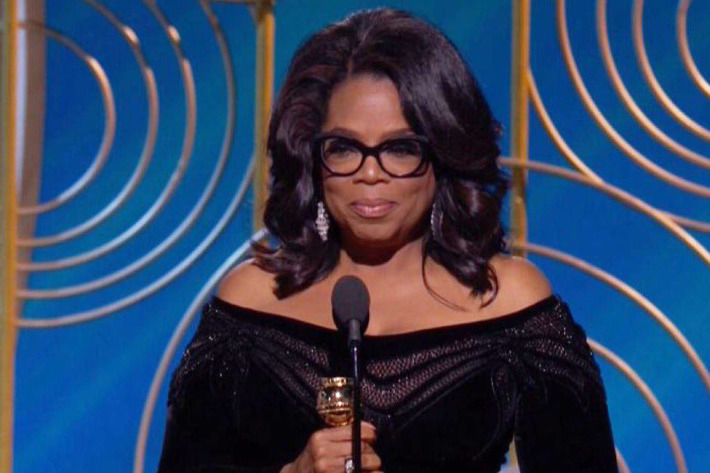This week has once again brought gender inequality to the forefront with female celebrities at the Golden Globes awards show ceremony wearing black to show solidarity with victims of sexual harassment and gender inequality. To highlight gender inequality further Will & Grace star Debra Messing used her Golden Globes red carpet appearance to criticise E! for not paying male and female employees equally in an interview with the network.
In the UK there was the well-publicised resignation of Carrie Gracie, the international editor for China, over pay disparity. The pay disclosure revealed Gracie was paid much less than two male international editors and she has resigned because she did not want to “collude” in unlawful pay discrimination.
According to Kate Palmer, Peninsula’s head of advisory and equality expert, employers have a legal duty to pay equal pay for equal work, regardless of the gender of the employees. However, the pay gap between genders is common knowledge in the UK, which is why the government introduced gender pay gap reporting requirements to force businesses to take action in this area.
“It is thought gender pay gap reports may lead to more complaints, grievances and potentially tribunal claims about the fairness, and equality, of internal pay practices. A toolkit recently released by the Government Equalities Office contains actions organisations can take to improve gender equality in their workplace,” she says.
“Gender equality should take place in every part of the workplace, from start to finish of an employee’s journey within the company.”
Diverse candidates
Targeting the recruitment process at a diverse mix of candidates, through use of different platforms, will encourage equality and diversity from the outset, Palmer adds. “Advertisements should be gender-neutral to avoid alienating those of a specific gender and any bias in the selection process can be removed by introducing objective scoring, skills-based hiring and having at least two people involved in the interview process.”
Job descriptions and pigeonholing
Job adverts which state the role is flexible at the outset or flexible hours will be considered will improve gender equality as it may encourage applications from individuals with personal or home responsibilities, such as females with childcare needs, Palmer explains. “Having a flexible working policy which is applied fairly and reasonably across all members of staff will support, and increase, gender equality in the workplace,” she says.
“The culture and mindset of the employer are also important here; those who view flexible working as a positive means of supporting staff are more likely to retain their talent and will see improved equality across the workforce.”
Supporting parents
Supporting staff with caring and parental responsibilities will also contribute towards improved gender equality. Where finances allow, offering staff increased rates of family pay over and above statutory payments, such as enhanced maternity pay, will provide workplace support to those with families and increase the likelihood of the employee staying with the business, according to Palmer. “Implementing a clear and straightforward shared parental leave policy, and having a positive attitude towards this leave, will also improve gender equality as it provides support for male employees who wish to have an equal role in the upbringing of families.”
“This will see more female employees being able to choose the amount of time they have off work depending on what is best for their family.”
Transparent and structured pay
Pay is, as ever, an important factor for employees, she adds. “Pay should be set dependent on the job role and a formal pay structure can be introduced to improve the transparency around pay levels; removing concerns about discriminatory pay rates,” says Palmer. “All decisions on pay, such as pay increases, should be made objectively and the employee can be informed of the reasoning behind the decision to avoid any misunderstanding or complaints.”
“An annual equal pay audit could be introduced to assess whether gender bias is taking place, either consciously or unconsciously.”
Ex-corporate high-flyer, Jessica Lorimer, slams the industry for financially penalising women for simply being women. Lorimer started her career in a high-powered corporate sales role, in which she saw first-hand how entrenched the secrecy is surrounding salaries, commissions and other earnings. According to her, the gender pay gap is a reality across the board, and it even goes on in companies known for their stance on promoting gender equality.
“The Annual Survey of Hours and Earnings has only been conducted by the Office of National Statistics since 1997 – so we only have ten years of data to really discuss what the gender pay gap looks like for women in 2017,” she says. And according to their data, we’ve seen a year on year decrease in the gender pay gap.
“But for real women, outside of the parameters of a tick box survey, life with the gender pay gap looks very different. Women in large corporate companies have been penalised financially simply for being women.”
The 2017 Annual Survey shows that the gender pay gap for high earners fluctuates regularly between 18.9 per cent to 20 per cent, and that the low earners or part time workers has decreased from a 5 per cent difference to 4.9 per cent.
However, it’s not the percentage that is the problem, says Lorimer. “It’s the fact that in 2017, in an age of equality between race, gender and sexuality that we are still seeing women penalised by the salary system – even in companies that promote gender equality.”
https://growthbusiness.co.uk/what-can-big-learn-from-small-when-it-comes-to-tackling-the-gender-pay-gap-2553254/
We have to look openly at mitigating factors, such as the number or percentage of women who work part time due to child care commitments, but we also have to look at the ages that the pay gap rises exponentially.
“Up until the ages between 35 to 39, the gender pay gap is relatively low. In fact 16 to 17 year olds are not affected by the pay gap at all. But when a woman enters the age bracket 35 to 39, the gender pay gap poses a bigger problem,” she explains.
“Simply put, this means that as women rise through corporate rank structure, they start to lose out on equal pay. Meaning that although they contribute all of the skills required in their role to ensure the profitability of their organisation, they don’t receive fair pay for their efforts.”
“Having worked in the corporate world, I can say that secrecy around pay was nothing new. In fact, at the beginning of my corporate career, I was fortunate enough to work for a meritocratic organisation. On a lunch break with a male colleague, it was discovered that I was being paid over £1000 more per year in the same job role. However, I had come into the role with four years commercial experience in a similar industry and my male colleague had not,” Lorimer adds.
“Over the next few years that I spent in the corporate world however, I saw secrecy around salaries, signed contracts that asked me not to disclose my salary, commissions or earnings to other employees and had conversations in bars with former colleagues that showed that sometimes pay scales weren’t always fair”.
Fair pay, equal pay and the gender pay reports
Going back to Carrie Gracie’s case, the BBC has come under a lot of fire in recent months over its skewed pay scales for talent. Mishcon de Reya Employment Partner Jennifer Millins is advising a number of senior women at the BBC on equal pay issues. According to her, it’s a matter of understanding the difference between fair pay, equal pay and gender pay reports – a distinction the BBC has repeatedly tried to make to justify its position on this issue.
“The BBC may have hoped that its reported gender pay gap of 9.3 per cent, around half the national average, would go some way to compensate for negative headlines it garnered on the issue last year,” she says, referring to the news in July 2016 that the high-earners list revealed that of all staff paid £150,000 or more from licence fee revenue, only one third were women.
“However, the BBC’s gender pay gap figure is not an answer to individual equal pay complaint. Whilst equal pay and the gender gap both deal with the disparity of pay women receive in the workplace, they are two different issues.”
Sir Patrick Elias QC, former Court of Appeal judge and president of the Employment Appeal Tribunal, who reviewed both the BBC’s recent pay audit and its Gender Pay Report, did conclude that there is no systematic discrimination against women in the BBC’s pay arrangement, Millins says. “However, he also said that this did not mean there could be no individual cases of discrimination. Crucially, this report does not relate to on-air staff in any event, most of whom were expressly excluded from the audit”
“The data remains frustratingly opaque, and if we take a holistic view of the BBC’s various reports, the BBC’s diversity reporting provides few answers for women and gives them little to cheer about. A long-promised review of on air talent pay, which was due out last year, is yet to materialise,” she adds.
“As Carrie Gracie’s resignation shows, failing to pay men and women who are doing the same work the same amount of pay can create a lack of trust between an organisation and its employees.”
Failing to deal promptly with internal grievances only serves exacerbate this distrust, and in itself is a breach of an employer’s obligations, she says. “As well as potential claims of substantial value, businesses should consider the severe reputational risks, both internal and external, which arise from an unconvincing, inconsistent gender pay report which lacks transparency, and a failure to deal with complaints from individuals when they arise.”
https://growthbusiness.co.uk/static-14-per-cent-current-rates-well-never-close-gender-pay-gap-2552747/






